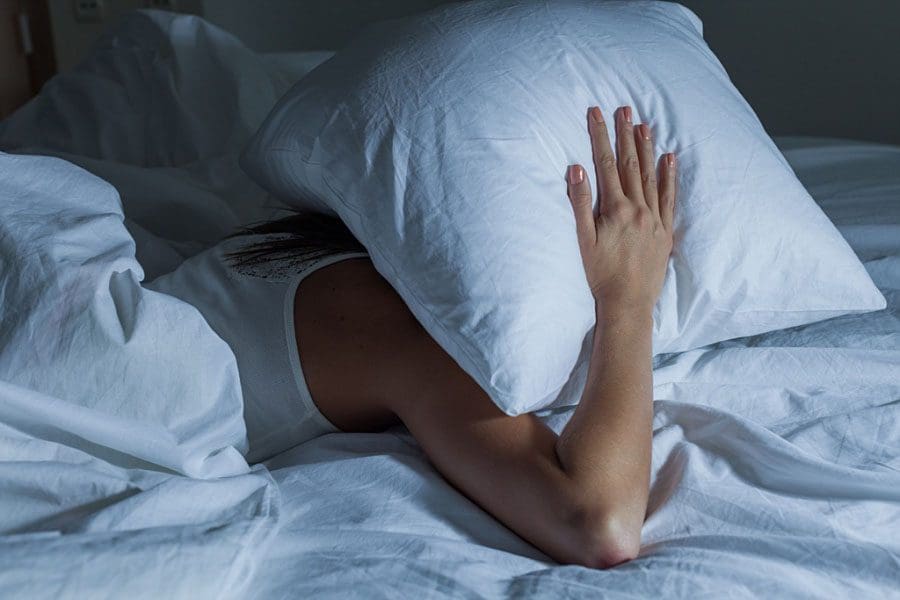Individuals with chronic back and neck pain often have sleeping problems/disorders because of their pain. This is usually the case as the connection between chronic pain and not being able to sleep goes hand in hand. However, it goes a bit deeper than that.
People that have chronic back or neck pain and struggle with sleep, assume it’s the pain that is keeping you from a sound sleep. Around two-thirds of individuals with chronic pain have sleeping problems that usually lead to sleep disorders. Research is finding that pain and insomnia have a mutual relationship.
Managing chronic back pain is a tough challenge. Add to that poor sleep and your quality of life just goes down. Here we explore the relationship between chronic pain and insomnia and offer some strategies to get proper sleep while managing your pain.
Insomnia #1 Sleep Complaint
Insomnia is the number one sleep problem, but there is some misunderstanding as to what it is.- Insomnia is not just about not being able to fall and stay asleep.
- Insomnia is not an isolated condition/disorder but a symptom.
- It is characterized by waking up throughout the night.
- It causes troubled sleep.
About half of insomnia cases are a result of a mental or emotional condition, like anxiety or depression both are common in people with chronic back or neck pain. Insomnia affects sleep quality and the U.S. health care system. In the United States lost work productivity brought on by insomnia is estimated to run around $63.2 billion per year, as reported by the journal Sleep. It also takes a toll on work accidents at around $31 billion per year, according to the Archives of General Psychiatry.
Insomnia and Chronic Pain
Researchers have found it’s not as simple as chronic pain-causing insomnia but it does play a big role. Here are findings from three studies to illustrate the connection between chronic back pain and insomnia.Chronic pain and insomnia are close.
Addressing your back pain early will benefit your spinal and body health tremendously. A study published in the Journal of Orthopaedic Surgery found that nearly half of the individuals had both chronic back pain and insomnia. They recommended early treatment of back pain to avoid worsening the injury and serious complications from insomnia.Does poor sleep equal to more pain?
It is not the pain but the feelings of pain. A study in the journal of Sleep found insomnia can intensify your perception of how the pain is going to be the next day. The poor sleep does not cause added pain, but it can make you highly sensitive to the sensation of pain.Can cognitive behavioral therapy work?
A study in Sleep Medicine followed patients who had chronic pain and used cognitive behavioral therapy for their insomnia. The results found that cognitive-behavioral therapy can effectively treat sleep problems in patients with chronic pain.Being Able to Sleep with Chronic Pain
Insomnia treatment is broken down into two categories that are behavioral therapy and prescription meds. Behavioral therapy is preferred because it provides a long-term solution without the harmful side effects. If a doctor recommends prescription medications, it will more than likely be for treating occasional bouts of insomnia.Those struggling to get proper sleep with chronic back or neck pain, cognitive behavioral therapy has become a first-line treatment as it addresses the thoughts and feelings that block restorative sleep. Chronic pain along with anxiety and other worries can definitely keep you awake at night. That is why this therapy can improve sleep as the behaviors and negative thoughts that interfere with sleep are changed.
Regular behavioral therapy has shown positive results, with as much as 80% of patients finding the ability to go to sleep and stay asleep. As an added bonus in the Annals of Internal Medicine reported that people who underwent behavioral therapy were able to fall asleep nearly 20 minutes faster and had 30 minutes less of being awake at night compared with those that did not utilize the treatment.
There is another technique that is being used to help insomnia called relaxation training. In relaxation training a professional trains you on how to relax your muscles and meditate to distract you from negative thoughts.
More get to sleep tips
- Use the bedroom for sleep and sex only.
- Television, reading, office work, and other activities keep to other rooms/areas of the house.
- Wait until you feel sleepy before going to bed.
- If you are unable to fall asleep in 20 minutes, go into another room until you feel drowsy.
- Keep a set waketime regardless of when you fall asleep.
- Stop napping until you can sleep through the night.





